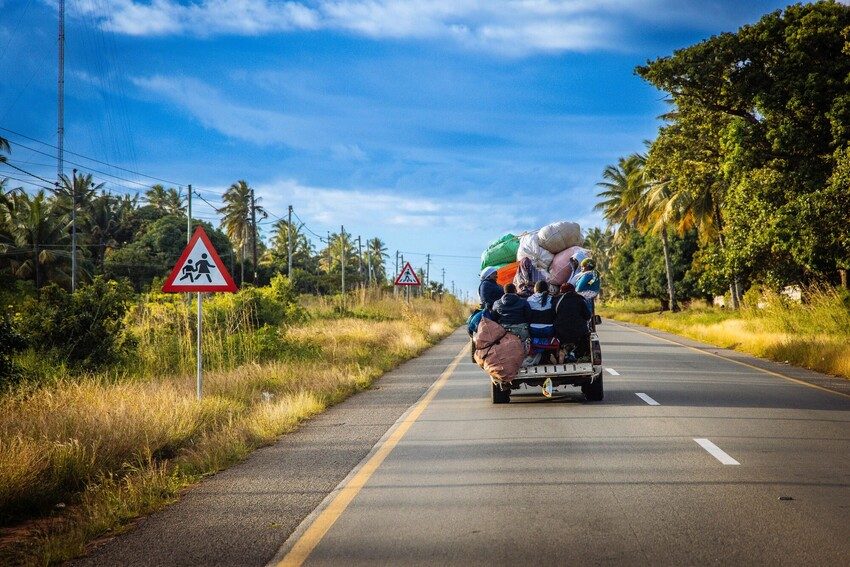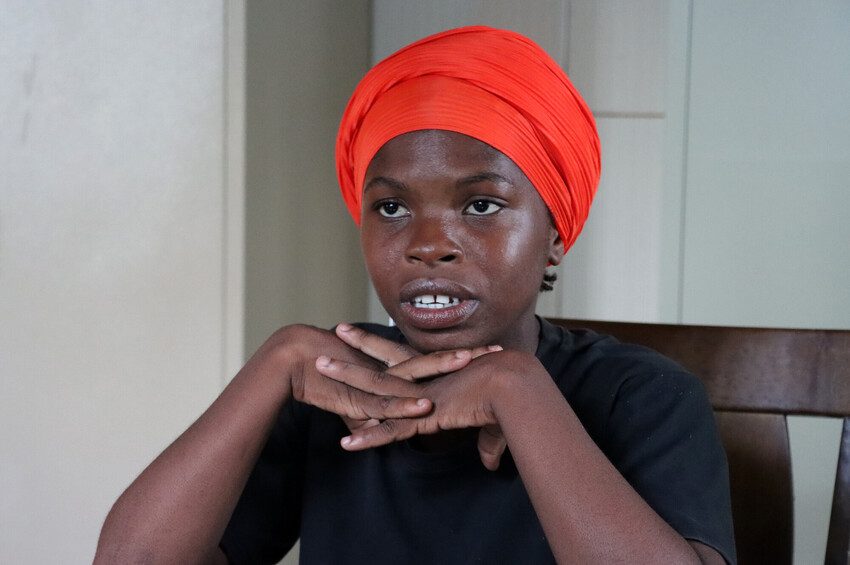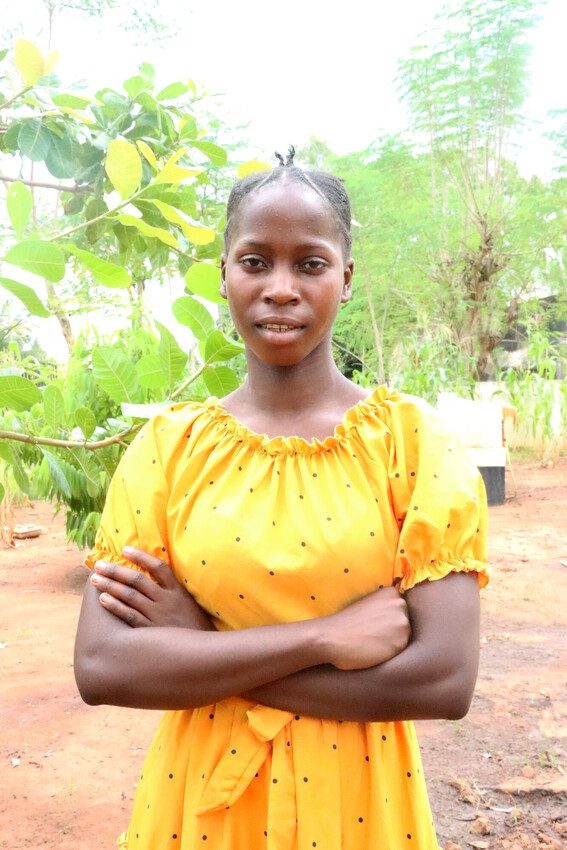Young people are spreading the message of peace
Amidst a conflict that has displaced almost one million people, young people are focused on spreading the message of peace and need to be involved in peace-building processes, blogs Plan International Deployable Communications Specialist, KC Shreeram.

The province of Cabo Delgado in Mozambique has been wracked by armed violence for 7 years. Thousands of people have lost their lives and almost a million have been displaced. The man-made conflict is largely the result of a struggle over natural resources and affects everyone, especially children and young people.
As a result, young people are forced to marry early and bear the burden of hardship, forgoing their youth. The conflict has led to abductions and many people have gone missing. On my visit to the region, I asked where the missing had gone – I was told that they had probably been taken by non-state armed groups (NSAG) to be recruited as child soldiers – groups the government calls ‘terrorists’.
A recent attack by the NSAG took place in the second week of February this year in Chiure, which had previously been a relatively safe place. The site of the attack is about 30 kilometres from where I arrived after almost a month of trying – access is not easy and the security situation is volatile. It’s a three-hour drive from Pemba, the capital of Cabo Delgado province which is considered to be one of the least developed of Mozambique’s 11 provinces, despite being rich in natural resources.
Northern Mozambique has been experiencing armed violence since 2017, affecting more than one million people who have been internally displaced by the conflict. In a recent new wave of displacement from December 2023 to February 2024, around one hundred thousand people were displaced, 60% of whom were women and children.
“If the war would stop, I would be more than happy because I could go back to my home village and start my life with my family again.”
Mariamo
Conflict puts girls and women at greater risk
The conflict has affected thousands of girls and women, and the trauma they have experienced is devastating. In the most recent attack, Amina told me how her 8-year-old child was brutally killed in an attack by armed men. Amina came to our helpdesk to share her ordeal and to register the case. Her pain and grief were evident and her testimony was heartbreaking.
Similarly, Filomena, 38, lost her children in the same attack. While trying to flee to safety, her family had to cross a river, but her 2 young boys lost their grip and were swept away. “There was nothing I could do for them,” she says solemnly. There are so many more stories of mothers who have experienced similar nightmares.
As well as fleeing their homes, losing their children and leaving their lives behind, displaced families face the additional challenge of integrating into a new community. Conflicts between internally displaced persons (IDPs) and host communities often escalate quickly and tensions run high.

The hope for lasting peace and harmony
Despite these difficult relationships, some of the young people here tell me that they are taking steps to promote peace. They are working to raise awareness of the importance and benefits of social cohesion between IDPs and host communities. But language barriers often make communication difficult and lead to misunderstandings. Even the simplest things can cause conflict and lead to clashes between people.
Young people trained in peacebuilding skills by Plan International are using the tools and techniques they have learned to mediate in minor disputes. I met Julieta, an 18-year-old displaced mother who took part in the training and recently intervened in a violent dispute between children over food. “One accused the other of eating her peanuts. The father of one of the children showed up and attacked the other child. It was a very ugly case and the only reason it didn’t escalate further was because we intervened,” she explains.

The young people of Cabo Delgado tell me that they want peace to return to their country and that they want to contribute to peacebuilding efforts. The area where they live is rich in resources, with gas, gold and minerals worth billions. They say that if the conflict ends, they will have a good life and a future to look forward to. But the fight for valuable resources that has led to the armed conflict has left them feeling voiceless, and many feel uncertain about the future and how to improve their lives while the conflict continues.
Often experiencing rejection and discrimination from host communities, young people say that they are often blamed for any violence that occurs making it hard to be accepted, which motivates them to find solutions themselves. They hope to create a peaceful environment for both the displaced and the host communities, and have demonstrated their commitment to spreading their messages of peace and hope.
Despite the clear challenges, these determined young people are focused on spreading the message of peace to children and young people – and encouraging them to work together. Mariamo, 20, an internally displaced young woman who attended one of the training sessions, often meets with children and young people to talk about the importance of peace.
“Our lives, our future, are threatened by this situation. If the war would stop, I would be more than happy because I could go back to my home village and start my life with my family again,” she says.
Social cohesion and peacebuilding
Our team in Mozambique is working hard to address the complex issues in the region. They work closely with girls and young women who have been through extremely painful experiences and support children at risk. In coordination with government and humanitarian actors, our case workers register children at risk and keep records to enable an effective humanitarian response. They also facilitate safe spaces for young people to meet. However, more resources are needed to reach more people.
Plan International has trained 129 young people to lead efforts to promote peace and social cohesion between IDPs and host communities. They lead sessions on human rights and the value of peace, and develop messages for campaigns against violence. They are often called upon to mediate small disputes between IDPs to promote coexistence and harmony, but their voices sometimes go unheard.
Humanitarian actors should encourage the involvement of young people in peace-building processes and conflict resolution. It would be encouraging to see the government put in place mechanisms to engage young people and hear their voices and ideas for peace. This could help create an environment conducive to peace and end the ongoing armed conflict for future generations.
Categories: Emergencies


